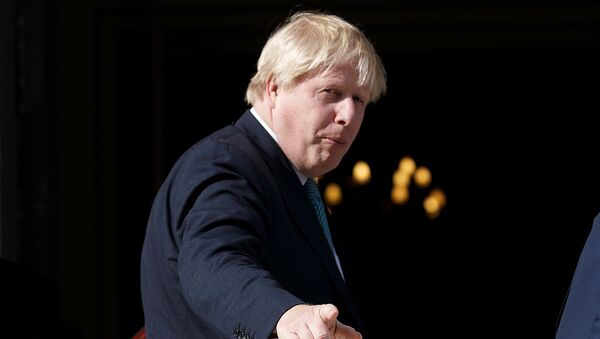Jonson's initiative was not supported by his European colleagues. Moreover, he rather found himself in isolation.
"Boris Johnson thought his great moment on the global stage had come. The UK Foreign Secretary demanded new sanctions against Russia due to an alleged chemical attack on the Syrian Air Force in the Idlib Province," the newspaper wrote.
According to Johnson, Russia had "poisoned its reputation" by supporting the Syrian regime, and thus cooperation with Syrian President Bashar al-Assad must have consequences, he argued.
"However, Johnson's pithy words were not welcomed by his colleagues. Italy, France and Germany in particular were opposed to hasty steps. Italy's foreign minister, Angelino Alfano, instead called for a dialogue with Moscow, as according to him Russia should not be ‘pushed into the corner,'" the newspaper noted.
A commentator for the Guardian newspaper called Johnson the "emotionally neediest of politicians," who is currently facing a career crisis.
Earlier, UK Foreign Secretary Boris Johnson said in an article for the Sunday Telegraph newspaper that Moscow should "make a sensible compromise," withdraw its support for Syrian President Bashar al-Assad and join the international coalition fighting Daesh.
He also had canceled his visit to Moscow, scheduled for April 10, due to the recent developments in Syria having said that his priority was to maintain positive relations with the United States and other countries in the run up to the G-7 meeting.


